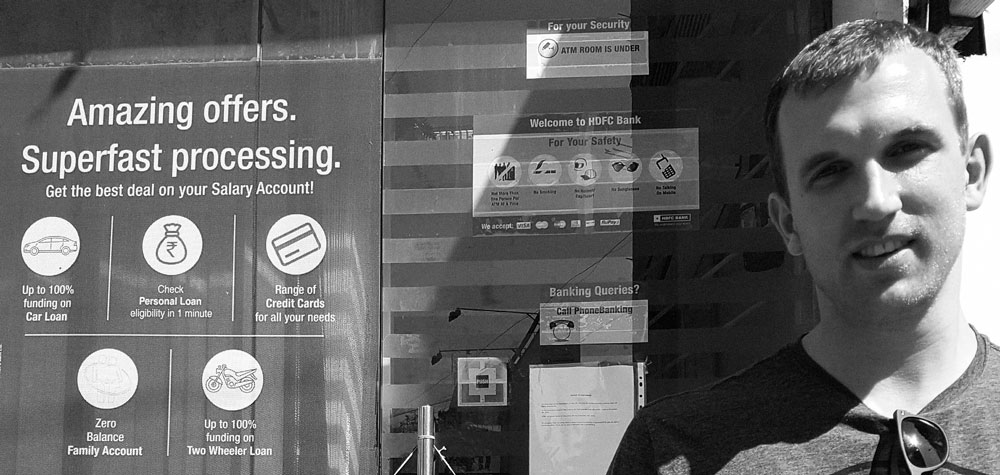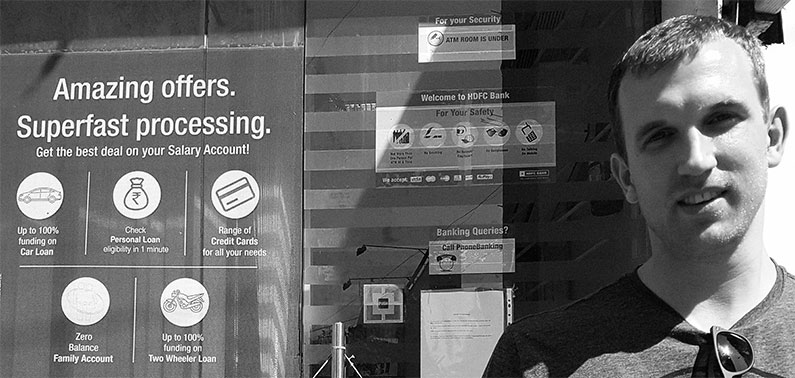by John Wilson, CFA, Equity Analyst, Mawer Investment Management, via The Art of Boring Blog
“Go to five companies in an industry, ask each of them intelligent questions about the points of strength and weakness of the other four, and nine times out of ten a surprisingly detailed and accurate picture of all five will emerge.”
—Philip Fisher
Funny word, fun to say, but how relevant is it for investors? For us, scuttlebutt is a valuable tool for both due diligence and idea generation.
Scuttlebutt was originally a nautical term for a ship’s cask where sailors would gather to share gossip—the early equivalent of today’s water cooler. Eventually it made its way into investing parlance to describe the qualitative, often conversational information investors consider when assessing potential investments—alongside the hard numbers and analytics. Not to be confused with insider information, scuttlebutt falls under the “Mosaic Theory,” which refers to a method of analysis whereby an analyst interprets a mix of public and non-public non-material information about a chosen company in order derive a more balanced and informed basis for valuation.
In his enduringly seminal book of investment philosophies, Common Stocks and Uncommon Profits, Philip Fisher used scuttlebutt to characterize the fastidious process of speaking with a potential investment’s customers, suppliers, business managers, similar businesses, and even direct competitors for information. Many investors—especially those who have short investment horizons—do not engage in these thorough activities. As long-term investors, however, we believe scuttlebutt provides us with an edge. We make a concerted effort to engage in such conversations in order to gain substantive insights about companies and to then weigh the impact of that information against our investment thesis.
How we approach the scuttlebutt process depends on the business model. For example, it is often helpful to talk to a company’s customer base to understand what drives their buying decisions. However, sometimes this information is less important than, say, talking to competitors. Even in models heavily tilted towards consumers, like a grocery store, we often get more worthwhile information from talking to the competitors, who can see the bigger picture, versus talking to a shopper in the produce aisle—although we’ll do this too. What to target all depends on the unique demands of the situation.
Asking other companies who the good operators are in their field, who’s doing it right, how, and why, gives us a better understanding of where a particular company fits within that industry. If we have three independent sources saying positive things about a company, that feedback is always going to carry more weight than anything heard directly from the company itself.
Additionally, corroborating everything management tells us not only reduces risk, it can also unveil new ideas and opportunities that might otherwise have remained undiscovered. For example, while doing scuttlebutt on a Latin American exchange, we talked to another exchange in Scandinavia with a similar business model called Oslo Børs. By talking with Oslo Børs, we got to know both exchanges better and came to realize Oslo Børs was actually a better opportunity with a much stronger management team. So what began as scuttlebutt turned into a current holding in our Global Small Cap portfolio.
Scuttlebutt in action
There is significant creativity to the scuttlebutt process, particularly in navigating the myriad of ways to best find the information you’re looking for. Some examples of creative scuttlebutt could include:
- searching online for customer win announcements and then calling these customers directly, usually one to two years later to see if they are happy and satisfied with their choice—which we did with Constellation Software’s customers in 2013;
- calling a CEO’s former place of work and asking for a reference; and
- finishing most management calls by asking who they believe is their best competitor (I did this with Indian banks and HDFC Bank was consistently mentioned, a company we now own in the Emerging Markets Equity Fund. That’s me in front of HDFC in the photo).
Using your own eyes can be a great source of scuttlebutt. On a research trip to the U.K., Christian Deckart, co-manager of our Global Small Cap Fund, visited an agrochemical seed distributor we own. While seeing their operation up-close and speaking candidly beyond the boardroom, we learned the true complexity of their business. They explained that one of the advantages they have is their significant investment in R&D using small plots of land where they test different combinations of fertilizer, chemicals, and seed. Having multiple plots of land where they can factor for many unique variables, the distributor eliminates their customer’s guesswork by conducting these difficult little experiments in advance to determine which combinations work best.
We also learned from speaking to them and their competitors that the market is localized; meaning what works in one region doesn’t necessarily work in another. Scuttlebutt information like this is crucial because having a smaller market means fewer competitors—if the same combination worked for everyone everywhere then suddenly they’re competing against a company in India or the U.S. Understanding that a specific combination wouldn’t work 300km away helped us realize there will be less competition, which makes it more likely the seed distributor will be able to earn decent returns.
When we looked at Softcat, a value added reseller of IT software and hardware, we wanted to better understand how sticky the relationship was with their end client. During our scuttlebutt process we spoke to our own IT department, who deal with similar companies all the time. We asked our IT Manager how likely he/we would switch providers for lower prices. He told us that they receive at least one email every week offering savings of $100-200, but he won’t switch because there is an individual with our provider he trusts and has been working with for over ten years. The reputational/dependability risk he’d be taking on by changing providers, just to save the firm up to $200, simply isn’t worth it. This was a powerful aha moment for us in research because it demonstrated the stickiness of the customer; trust trumped savings. As a result, we initiated positions in two value added resellers.
Again, putting time and energy into scuttlebutt really only makes sense for those with a long-term investment strategy. And for those willing to make this investment of time, it’s also crucial to differentiate between market noise and direct scuttlebutt. Whenever possible, speak with those truly in the know—customers, suppliers, managers, competitors, etc.—versus accepting the media’s interpretations as trustworthy. My colleague Christian Deckart likens media noise in this regard to funhouse mirrors. When someone writes or reports on something, they put their own distortion on it, and then you’ll put your own distortion on their distortion. Whereas if you talk directly with the right people, the more likely it is you’ll see a clearer picture.
Finally, it’s important to note that whenever we do scuttlebutt, we never pretend to be someone we’re not. We don’t pretend to be a customer or a supplier—we tell whoever we’re talking to upfront that we are investors and the reason we’re calling is to understand business X better. This may bias their response, but it’s better to have integrity than to risk our own reputation.
![]()
About John Wilson
John Wilson, CFA, BBA, is an Equity Analyst at Mawer Investment Management Ltd., which he joined in 2012. Previously, he spent two co-op terms at JC Clark in Toronto. Learn more
This post was originally published at Mawer Investment Management












